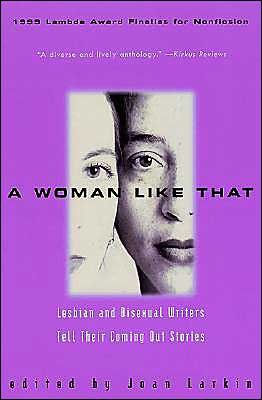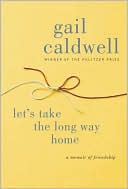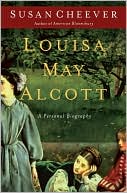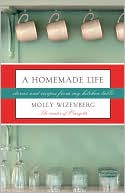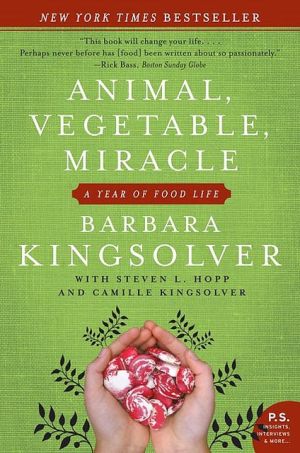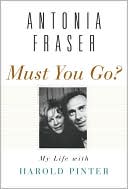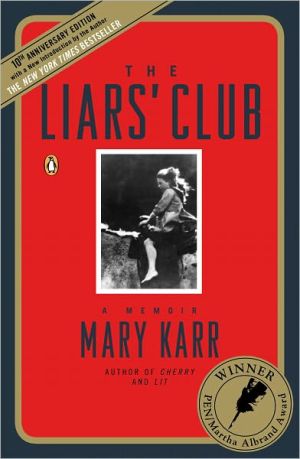Woman Like That: Lesbian and Bisexual Writers Tell Their Coming Out Stories
The act of "coming out" has the power to transform every aspect of a woman's life: family, friendships, career, sexuality, spirituality. An essential element of self-realization, it is the unabashed acceptance of one's "outlaw" standing in a predominantly heterosexual world.\ These accounts — sometimes heart-wrenching, often exhilarating — encompass a wide breadth of backgrounds and experiences. From a teenager institutionalized for her passion for women to the mother who must come out to her...
Search in google:
The act of "coming out" has the power to transform every aspect of a woman's life: family, friendships, career, sexuality, spirituality. An essential element of self-realization, it is the unabashed acceptance of one's "outlaw" standing in a predominantly heterosexual world. These accounts — sometimes heart-wrenching, often exhilarating — encompass a wide breadth of backgrounds and experiences. From a teenager institutionalized for her passion for women to the mother who must come out to her young sons at the risk of losing them — from the cautious academic to the raucous liberated femme — each woman represented here tells of forging a unique path toward the difficult but emancipating recognition of herself. Extending from the 1940s to the present day, these intensely personal stories in turn reflect a unique history of the changing social mores that affected each woman's ability to determine the shape of her own life. Together they form an ornate tapestry of lesbian and bisexual experience in the United States over the past half-century. Publishers Weekly Reflecting the breadth and depth of the contemporary lesbian experience, these 31 coming-out stories collected by Larkin--co-editor of Gay and Lesbian Poetry in Our Time--attest to their editor's training and sensibility as a poet (Cold River, etc.). Most of the featured authors have publishing credits in more than one genre and exhibit a refreshing facility with language. The stylistic and narrative variation, from Judith Katz's rollicking "Born Queer" to Judy Grahn's poetic "Windows," save the book from thematic sameness; the generally crisp prose keeps it from being pedantic. Many of the stories are, by necessity, coming-of-age stories, and several are, predictably, assertions of tomboyhood as a precursor to lesbianism. Several authors reveal the darker implications of breaking the traditional female mold, in moving and serious essays about having been forced into psychiatric treatment (Heather Lewis) and losing custody of children (Minnie Bruce Pratt). These are nicely offset by more lighthearted essays about wearing makeup and dresses, by Tristan Taoromino and Lesl a Newman. Because Larkin invited mostly established writers to this anthology, it reads a little like a period piece, heavily weighted to the heyday of lesbian feminism in the 1970s and 1980s. With only a few exceptions, the essays are beautifully written, brought to life by humor and telling detail. Enhanced by the period author photos at the close of each essay, this collection could be put to good use in the classroom and especially by budding lesbians. Agent, Sydelle Kramer, Frances Goldin Literary Agency. (Oct.) Copyright 1999 Cahners Business Information.
This Song Is Dedicated To The One I Love\ Bertha Harris\ Pretty girls deserve more of the things of this world than the rest of us. They shouldn't have to do the dirty work, they shouldn't have to work hard for a living; instead, they deserve to marry up, then get treated right when they do. Sometimes, though, pretty girls are so hot they can't think straight; their brains are lodged up there between their thighs, tucked in out of sight in the tail-end of their torsos. Mary Zuleika cloaked hers in peach silk panties that were tight in the crotch, loose in the leg. Tap pants.\ I lived with Mary Zuleika for only sixteen years, but we lived up close against one another. It was as if a heavy-duty band of ectoplasm--that fleshy emanation from the entranced medium to the participant in her séance, the one who wants to know why--roped us together. She used it to impress, wordlessly, certain words on me: on the tabula rasa which was my mind. She also used it like a leash; I might as well have been her dog, slavering for handouts one minute, cringing in submission at her feet the next--or going barking mad when she denied me any attention at all. Mary Zuleika was my mother. I suppose she was. I have only her word for it. The words she taught me were dirty words: fuck, pussy, cunt, etc. I overheard them; she was talking to herself.But in the spirit of "waste not, want not," I wrote the words down.\ I was in the second grade at St. Patrick's. I was six. One day a little girl named Lucy, to whom I'd given my heart, my love and devotion, wasn't there. "She ain't sick," said Mary Zuleika; "her mama and daddy got killed in a wreck.Now she's an orphan in the orphanage. You want to go see her?" John and Mary Zuleika never took me anywhere they could help not to. The Catholic orphanage was fifty miles from their front door, which was 603 Pilot Avenue, Fayetteville, North Carolina. Its parlor was paneled in golden oak; its scent was furniture polish and bouquets of flowers. It was spacious and peaceful. I thought that Lucy must like it there.\ "You watch that door over yonder," Mary Zuleika told me. "Lucy's going to come through that door."\ "I don't know about this, Zeke," John said. I hated how he called her "Zeke." They followed a nun out the other door, then she shut it behind them.\ Lucy never appeared. John and Mary Zuleika were angry when they reappeared. They wanted to have a fight on the way back to 603 Pilot, but John had to keep his hands on the wheel and his eyes on the road; and to make things worse, he had to pull over and change a tire, then drink from the pint of gin in the glove compartment. It was his nerves.\ The visit to Lucy was, I've lately decided, a mind fuck: they either tried to get the orphanage to take me or to take me back, and the nuns had told them to fuck off. No wonder they felt like bell.\ I didn't decide that Lucy was dead. I kept on waiting for her.\ It's not so much that pretty girls deserve to get fucked--although they're asking for it-while they're young and still pretty and tremendously hot enough to bum with the desire to get fucked: it's that if they don't, they'll never get fucked at all, the same as to be fair--pretty girls. I'm nothing if not fair when it comes to pretty girls.\ Mary Zuleika Jones was a pretty girl who was hot and let it show. She had a sense of humor--that is, she made fun of females who had to make do with nothing but other females, and she made fun of genuine old maids, especially the ones who had to work hard for their livings but then spent every last cent, selfishly, on themselves. She made fun of old maids because they were selfish. They didn't know the meaning of having to make sacrifices the way she wound up having to do. Every time she whipped me, she spoke from her heart: "I cain't have nothing," she cried out to the beat of the switch against my legs; "why cain't I have nothing and you think you got a right to anything you want?"\ In the summer of 1949, the polio epidemic happened. I was eleven. The Health Department warned everybody to keep their children in their own yards or in the house, No going swimming at the town pool or going to the picture show or church or having any contact with any other children unless they belonged to the family. This was something new. Usually, it was a typhoid epidemic; the Cape Fear River would overflow and get inside the drinking water, so we got painful inoculations that made as feverish. just a sandy driveway separated Mary Zuleika's house from the house next door where the girl next door lived. I did what I usually did during the long, humid summers: I squatted down in the sandy driveway and used a stick to divert or destroy the industrious ants laboring to perfect their ant-hill homes.\ One afternoon, John's cousin Frances Catherine drove in the driveway. Fanny was that particular selfish old maid Mary Zuleika made fun of Fanny was a treasured bookkeeper for a plumbing supper. She drove her fine car fast; she bought herself diamond rings and brooches, and she lived in a big two-story white house by herself. She was always in a thrilling state of happiness. Fanny had brought me a present. To get me through the epidemic, she said. It was a book, It was Mistress Masham's Repose by T. H. White. There wasn't a single book in Mary Zuleika's house; I had never had any books but school books, which were strictly on loan and had to be turned back in to Sister at the end of the school year without a single mark or break in the spine.\ Mistress Masham's Repose was about an orphaned little girl who's bespectacled, gawky, lonely, scared. She's captured by the tiny, almost invisible, descendants of Gulliver's Lilliputians, who become her loving friends and transform her fear into happiness. I already needed glasses; the world was a blur. "We need a lot of other things around here besides glasses that make you took ugly," said Mary Zuleika. And Lucy was the orphan, not me. Fanny was my godmother. "You're going to turn her into a bookworm and drive her blind," Mary Zuleika told Fanny, "and you spoil her." Fanny didn't take offense...
\ Publishers Weekly - Publisher's Weekly\ Reflecting the breadth and depth of the contemporary lesbian experience, these 31 coming-out stories collected by Larkin--co-editor of Gay and Lesbian Poetry in Our Time--attest to their editor's training and sensibility as a poet (Cold River, etc.). Most of the featured authors have publishing credits in more than one genre and exhibit a refreshing facility with language. The stylistic and narrative variation, from Judith Katz's rollicking "Born Queer" to Judy Grahn's poetic "Windows," save the book from thematic sameness; the generally crisp prose keeps it from being pedantic. Many of the stories are, by necessity, coming-of-age stories, and several are, predictably, assertions of tomboyhood as a precursor to lesbianism. Several authors reveal the darker implications of breaking the traditional female mold, in moving and serious essays about having been forced into psychiatric treatment (Heather Lewis) and losing custody of children (Minnie Bruce Pratt). These are nicely offset by more lighthearted essays about wearing makeup and dresses, by Tristan Taoromino and Lesl a Newman. Because Larkin invited mostly established writers to this anthology, it reads a little like a period piece, heavily weighted to the heyday of lesbian feminism in the 1970s and 1980s. With only a few exceptions, the essays are beautifully written, brought to life by humor and telling detail. Enhanced by the period author photos at the close of each essay, this collection could be put to good use in the classroom and especially by budding lesbians. Agent, Sydelle Kramer, Frances Goldin Literary Agency. (Oct.) Copyright 1999 Cahners Business Information.\ \ \ \ \ Library JournalLarkin, a two-time Lambda Award winner for poetry, has collected coming-out stories by a diverse group of lesbian writers, including such well-known authors as Judy Grahn, Joan Nestle, and Leslea Newman. Many of the stories focus on "coming out" in the sense of a growing self-awareness, while others describe coming out to parents or children. Some of the stories cover single episodes from childhood, while others trace the writer's growing awareness and experiences over many years. The great complexity of sexual identity is apparent in the common themes expressed here. Many of the stories are painful; all are illuminating and should resonate with readers who have their own coming-out stories. Recommended for all public libraries.--Debra Moore, Loyola Marymount Univ. Lib., Los Angeles Copyright 1999 Cahners Business Information.\ \ \ Kirkus ReviewsA diverse and lively anthology of popular lesbian and bisexual authors writing about the multifaceted phenomenon of coming out. The paradoxical central beauty and flaw of this anthology is the construct of "coming out" itself. Larkin (ed., Gay and Lesbian Poetry in Our Time, not reviewed, etc.) acknowledges in her introduction that coming out can refer to anything from a first embrace to a political statement. The most successful essays tell an actual story. Karla Jay's "First Love" at summer camp stands out as particularly hilarious and poignant. Heather Lewis's blunt, devastating story spans her first experiences with women as a 12-year-old and her father's sadistic attempts to have her "cured." Cheryl Boyce Taylor captures the open, innocent sensuality she and her childhood girlfriends shared juxtaposed against isolation and threats of violence that pepper her adult lesbian life. Some writers gloss over or shirk the actual moment of coming out to write more generally about lesbian identity—the stuff of standard gay/lesbian anthology fare. A few essays lack cohesion; several authors submitted stories in a stilted, amateurish, journal-entry format that detracts from their evocative material. The book as a whole may have arrived 15 years too late, when coming out is less the cutting-edge issue for queer people, having been supplanted by more topical concerns, such as gay marriage, "postgay" theories, and hate-crime legislation. However, lesbian readers will appreciate these reminiscences for the voyeurism: a bird's-eye view of an admired writer fumbling and breathless in her first embrace. The most profound insight here comes from seasoned lesbian writer and activist JillJohnston: "Should it ever cease to be necessary to come out, a lesbian or gay identity would itself cease to exist." An uneven but enjoyable collection of original reflections on the notion of the process of coming out and its continued necessity. (31 b&w photos, not seen)\ \
